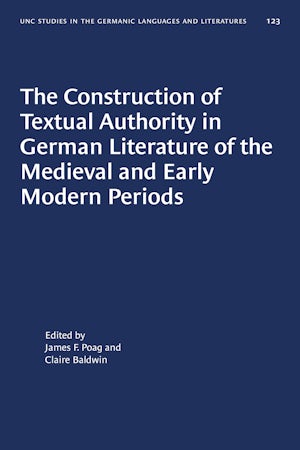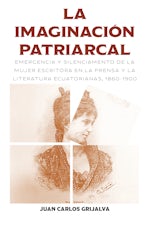The Construction of Textual Authority in German Literature of the Medieval and Early Modern Periods
Edited by James F. Poag, Claire Baldwin
With a new foreword by Claire Baldwin

306 pp., 6 x 9, 24 halftones, notes, index
-
Paperback ISBN: 978-1-4696-1504-2
Published: March 2014
University of North Carolina Studies in Germanic Languages and Literature
Buy this Book
This title is not eligible for UNC Press promotional pricing.
The contributors are Claire Baldwin, Thomas Cramer, Arthur Groos, Walter Haug, C. Stephen Jaeger, Jane O. Newman, James F. Poag, David Price, Rüdiger Schnell, Lynne Tatlock, Horst Wenzel, and Gerhild Scholz Williams.
About the Authors
James F. Poag is professor emeritus of German at Washington University in St. Louis.
For more information about James F. Poag, visit
the
Author
Page.
Claire Baldwin is assistant professor of German at Colgate University in Hamilton, New York.
For more information about Claire Baldwin, visit
the
Author
Page.
Reviews
"The collection of this volume, as a whole, provides a diachronic view of the complex question of the establishment of authority in a wide range of genres (including music and art) through seven centuries. The authors are ingenious in calling upon a large number of variegated approaches with appropriate examples to illustrate their arguments."--Daphnis



